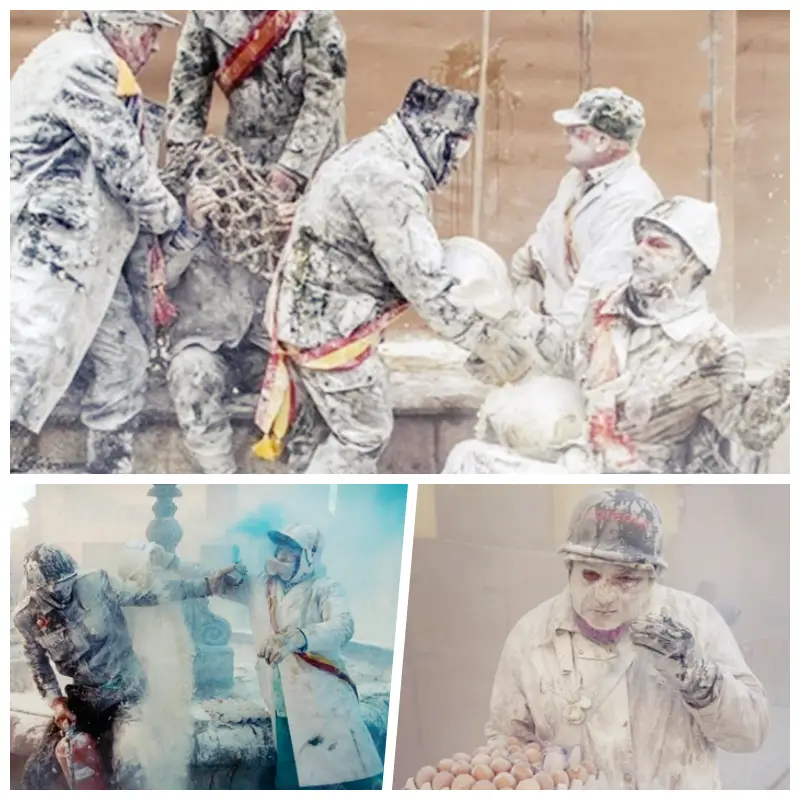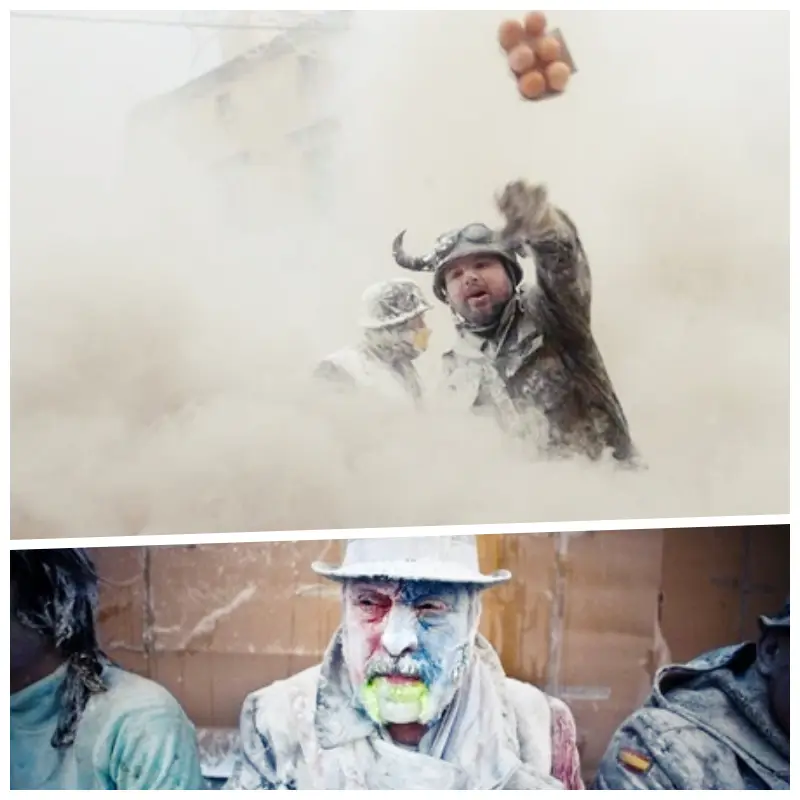
The Epic Egg and Flour Fight at Spain’s Unique Festival
In late December, the small town of Ibi near Alicante, Spain, transforms into a battleground of fun and chaos during the annual Els Enfarinats festival. This unique event, known for its egg and flour fight, has been a local tradition for over 200 years. While the exact origins are shrouded in mystery, the festival was revived in 1981 and has since become a popular attraction for both tourists and locals.
The Thrill of the Festival
Els Enfarinats kicks off in the town’s central Placa de l’Esglesia square, typically starting at 8 a.m. and continuing until 5 p.m. The festival features two main groups: married men against those holding the “government” positions. Though the battle is staged, it is fiercely contested as participants hurl flour and raw eggs at each other with unabated enthusiasm. Fire extinguishers and flares are sometimes used to intensify the festive atmosphere.

As soon as the whistle blows, the square erupts into a frenzy of white flour and sticky egg yolks. Despite the unpleasant smell and the mess, participants remain spirited and engaged. To protect themselves, players don heavy coats, high boots, helmets, and goggles. Many attendees see the festival as a way to relieve stress and embrace a playful break from daily life.
The Significance of Els Enfarinats
The festival’s origins trace back to the early 20th century, emerging as a joyful and playful tradition within the local community. It embodies a spirit of fun and chaos, celebrating the light-hearted side of Spanish culture and tradition.
Els Enfarinats fosters a strong sense of community as locals and visitors come together to participate in the festivities. The event encourages social interaction and camaraderie through shared activities and playful chaos.

The throwing of flour and eggs serves as a symbolic act of rebellion and release from societal norms. It allows participants to temporarily escape their daily routines and embrace a sense of liberation and spontaneity.






